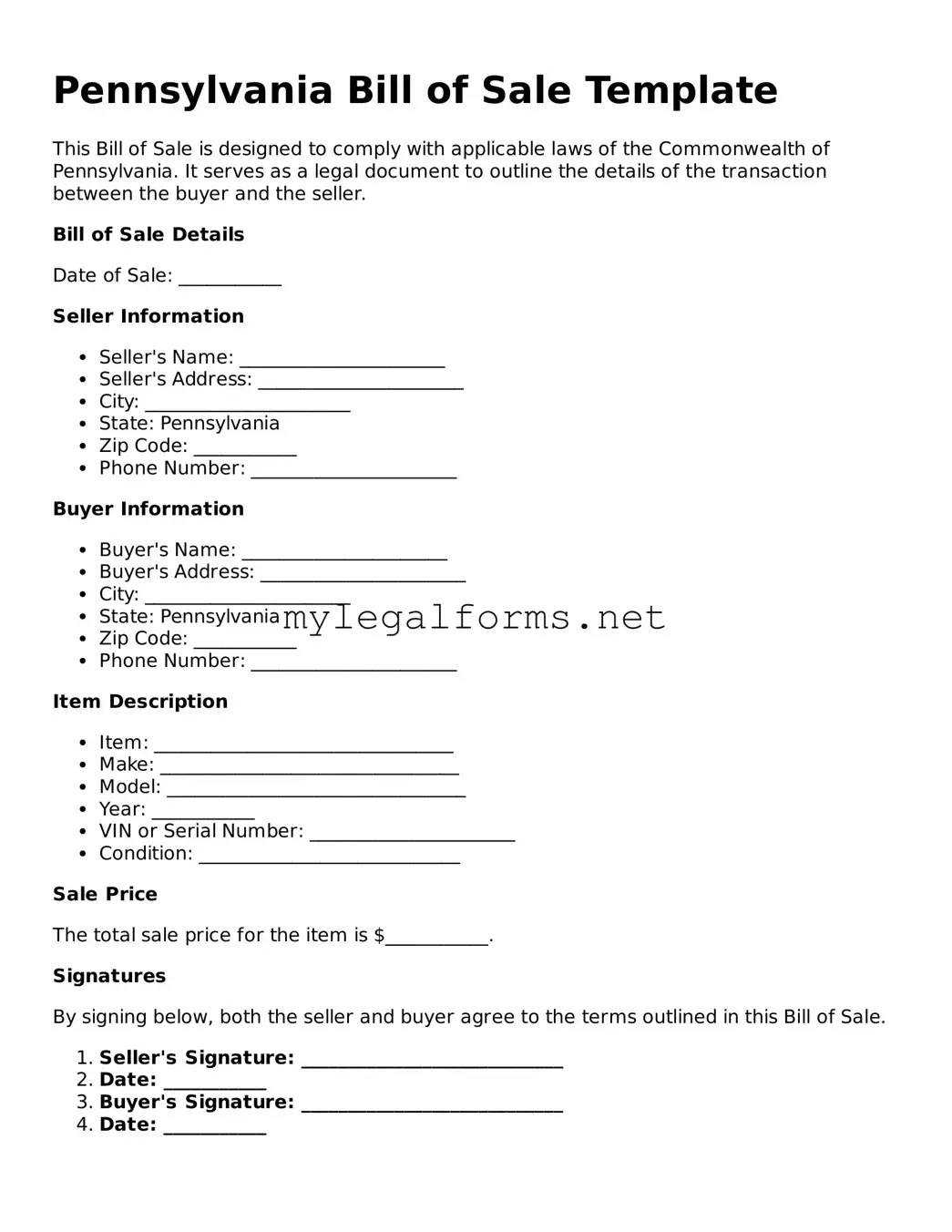Bill of Sale Document for Pennsylvania State
The Pennsylvania Bill of Sale form is a legal document that records the transfer of ownership of personal property from one party to another. This form serves as proof of the transaction and outlines essential details about the item being sold, including its description and sale price. Understanding the importance of this document can help ensure a smooth transfer of ownership and protect the interests of both the buyer and the seller.
Launch Bill of Sale Editor

Bill of Sale Document for Pennsylvania State
Launch Bill of Sale Editor

Launch Bill of Sale Editor
or
⇓ PDF Form
Complete the form at your pace — fast
Finish your Bill of Sale online and download the final version.